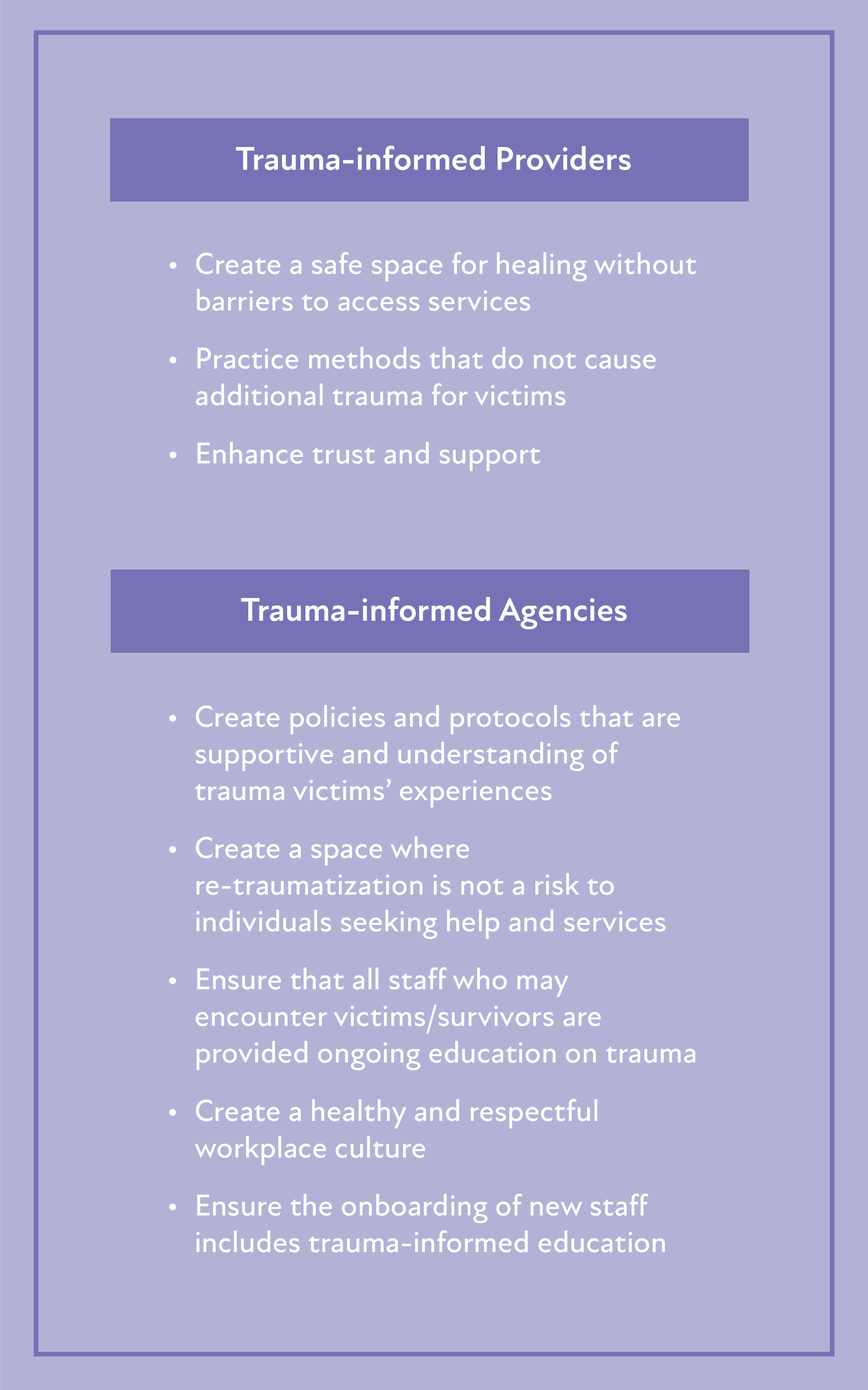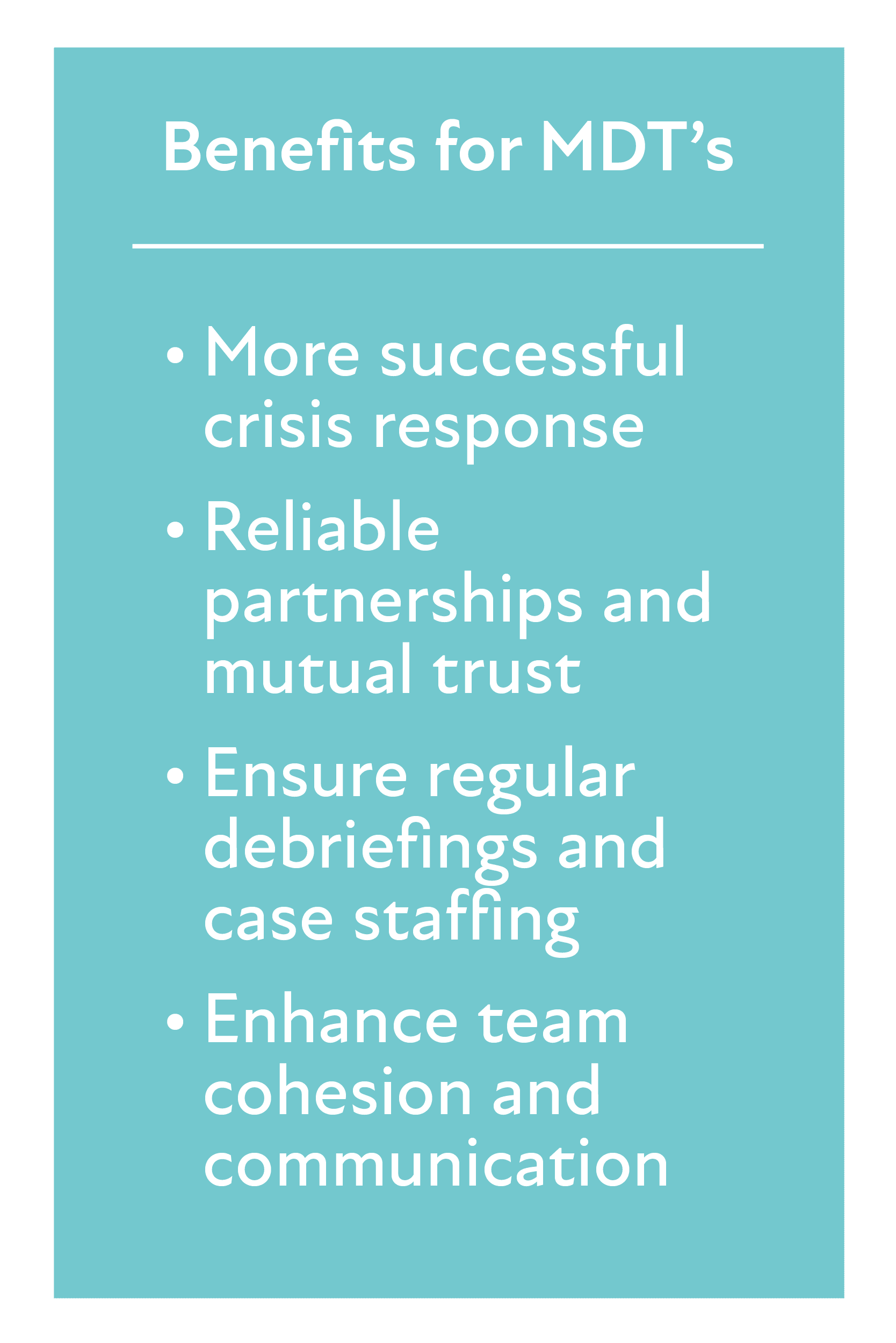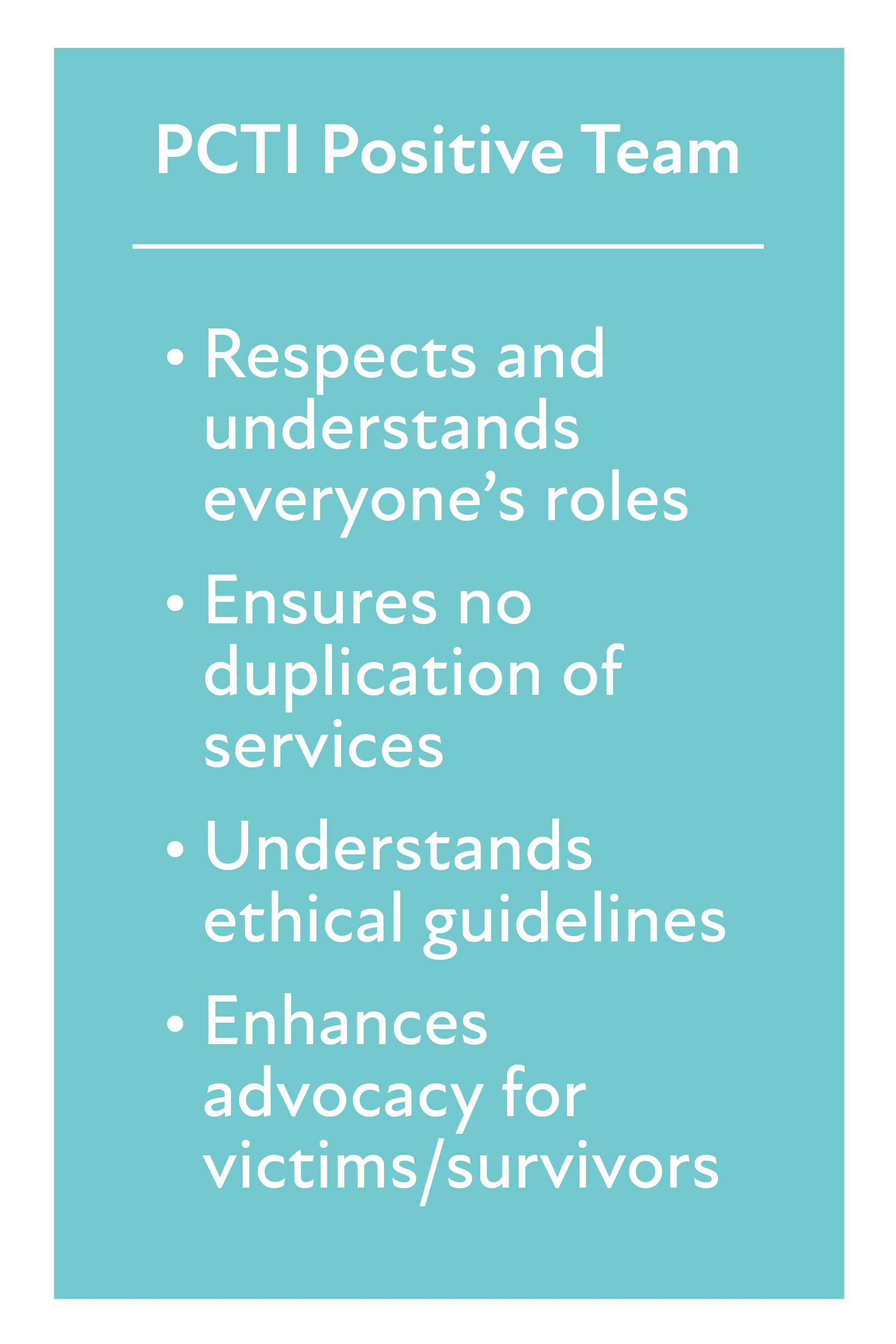Person-Centered, Trauma-Informed Care (PCTI)
PCTI care is a responsibility of all MDT members and encompasses a well-rounded response to ongoing care. The most successful cases are comprised of trauma-sensitive team members who hold one another accountable, advocate for victims and survivors, and who ensure victims receive the care they deserve.

Person-Centered Care
Person-centered care is based on respect and dignity for each victim/survivor, treating everyone with autonomy and ensuring victims/survivors are at the center of decisions about their care. It considers each victim/survivor as an individual, and accounts for their age, gender, socioeconomic status, education, culture, race and ethnicity, language, and belief systems.

Trauma-Informed Care
Trauma-informed and trauma-sensitive care providers must have an understanding that past trauma can impact victims’/survivors’ lives on an ongoing basis, affecting their sense of self and community around them. They are to assume that individuals seeking services have a history of trauma or have experienced a traumatic event, and are mindful that any interaction with victims/survivors can be re-traumatizing. Collaboration between providers and agencies in promoting environments of healing and recovery is essential to victim resiliency.
More information on trauma-informed care can be accessed here.

PCTI Multi-Disciplinary Teams
Members of MDTs should actively advocate for a person-centered and trauma-informed (PCTI) approach. Coordinated teamwork with the PCTI approach will prevent victims from experiencing multiple barriers in the system and ensure more successful outcomes.


